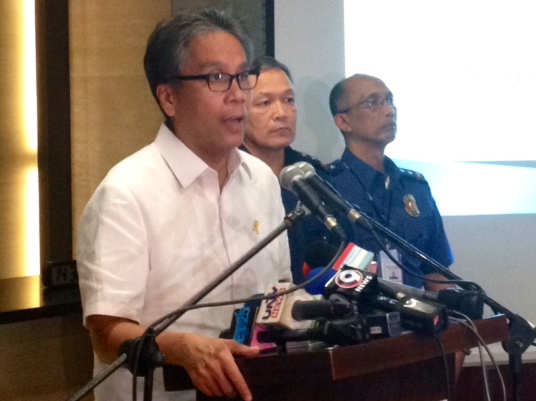Philippine News
DILG chief orders creation of PNP protocol for disasters
MANILA — Interior and Local Government Secretary Manuel “Mar” Roxas II on Sunday ordered the Philippine National Police (PNP) to take the lead in creating a protocol for police response in times of disasters.
“In times of disaster, police presence also means government presence. A protocol in times of disaster can help ensure this,” Roxas told General Danilo Constantino, Director for Police Community Relations of the PNP during weekly briefing held at PNP Headquarters in Camp Crame, Quezon City.
During the meeting, Gen. Constantino reported that the PNP-Special Action Force (SAF) was deployed in Eastern Samar while other units were put on standby for immediate response in the aftermath of typhoon Ruby. <p“There should be an institutional approach, whether it’s me who is here or whoever is here as DILG secretary,” Roxas added.
There were 132 operatives from SAF deployed in Eastern Samar, 62 of whom were positioned in major supply routes while 70 assisted in relief operations. Offices of the Department of Social Welfare and Development (DSWD), the seaport in Allen and Borongan City airport were also put under the PNP’s watch. The strategic deployment of these personnel helped in preventing bad elements from committing crimes against the typhoon victims.
“We could not have done this without the support of the local government units (LGUs),” said Constantino.
Roxas also suggested that Constantino can work with the Philippine National Police Academy (PNPA) and the Philippine Public Safety College (PPSC) in formulating the protocol for disaster preparedness and immediate response.
The protocol is set to include not only plans to deploy police personnel in typhoon areas but also the composition of critical managers and incident committees, and the technical and logistical needs of Search, Rescue and Retrieval (SRR) Teams.
The DILG is also studying the inclusion of satellite phones as part of the PNP’s minimum preparation in times of disaster.
“This should be the protocol in hard-hit areas not only because I was there (in Eastern Samar) but because that ought to be the case,” Roxas remarked.






















